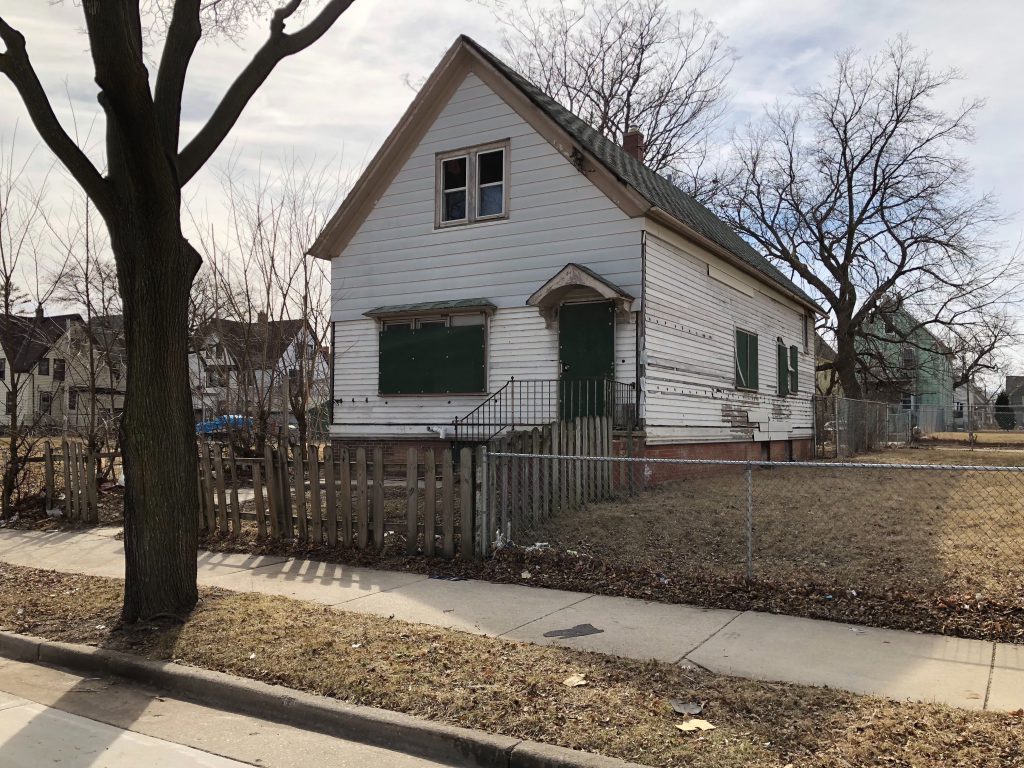Emergency Housing Program Stalls
Proposal for 10 homes for those at-risk could face funding gap, other issues.
A $300,000 budget amendment intended to provide emergency housing to at-risk populations appears insufficient to pay for the 10 housing units it was hoped to, but there remains interest in advancing the effort.
The proposal, introduced in October by Alderwoman Chantia Lewis, is intended to provide temporary housing to families needing emergency housing and women picked up in prostitution stings.
Department of City Development representatives briefed the Common Council’s Zoning, Neighborhoods & Development Committee on Tuesday on their efforts to implement the project. Deputy commissioner Martha Brown said city officials have met with a number of interested organizations that presented differing strategies on how and where the housing would be used.
Amy Turim, DCD real estate services manager, said she’s been in contact with Fresh Start Learning, Dana World-Patterson of the Human Trafficking Task Force, Community Advocates and Milwaukee County. “Each organization looks at this a little bit differently,” said Turim. “Some groups want to be right where activity is occurring, while other groups don’t want to be where activity is occurring.”
“That organization, once selected, should really be in the driver’s seat,” said Brown of selecting the properties.
But committee members pushed for action. “I guess my trepidation about your comments, Martha, is that we have the real estate available to us when we have it,” said Ald. Milele A. Coggs. “To wait for the organizations could cause the loss of some properties that would be good to be utilized in this situation.”
The city typically has some 1,000 properties in its inventory of homes, but is regularly marketing properties it acquires via tax foreclosure. Approximately 300 properties are listed currently.
“It’s early. A lot of work has been done thus far,” said Ald. Russell W. Stamper, II, a co-sponsor of the effort. He said Lewis has been meeting with organizations as well. “The sooner we can get and locate the properties the better.”
“We have a plethora of them. It’s not like we’re short properties,” Stamper added.
“That’s true,” said Brown. “We will offer them hundreds rather then tens.” But Coggs noted that the effort is targeted at a specific type of property, a two- to four-family home. “It is a little bit more narrow of a grouping,” said Coggs. Brown said the likely property used would be a duplex.
But even if the right properties can be found, the current budget allocation appears unlikely to be enough to redevelop 10 properties.
Turim said an existing program offers any city home listed for $25,000 or less to be sold to qualified non-profits for $1,000 or less. But the homes need a lot of work. “Those full scopes averaged around $67,000 per property,” said Turim of the city’s rehabilitation estimates.
An even bigger challenge will require the city to come up with a tightly-constructed legal structure. “With regards to domestic violence shelters as well as emergency shelters, they do need to be accessible,” said the city’s Americans with Disabilities Act (ADA) coordinator Rebecca Rabatin. “I do want to point that out, that the facilities will need to be accessible, including the programming itself.” The city has an ADA settlement with the Department of Justice.
“Whoa, whoa, whoa. Chair, I think we need to unpack this a little more,” said Ald. Robert Bauman. He noted that the costs to make the homes ADA-compliant would be astronomical, “which would almost knock out of the box any property the city has in its inventory. A duplex is basically not doable at any reasonable cost.”
Rabatin said the homes could be sold to a non-profit organization and operated as non-ADA compliant as long as the organization wasn’t acting as an agent for a city program. Rabatin said the organizations need to be concerned if they receive federal funds, because it could require ADA compliance. “There are different standards required of a Title II entity and a Title III entity,” said Rabatin.
Regardless of what happens, Coggs said there is a definite need. She said she recently attended a meeting regarding human trafficking with Alderwoman Lewis and learned that housing is one of the greatest challenges. “I see this as one small way to impact that,” said Coggs.
“We’re very happy to cooperate,” said Brown. The committee unanimously endorsed advancing the program.
“The key word in this resolution is collaborate,” said Coggs. “It’s not going to be settled at this table here today.”
Legislation Link - Urban Milwaukee members see direct links to legislation mentioned in this article. Join today
If you think stories like this are important, become a member of Urban Milwaukee and help support real, independent journalism. Plus you get some cool added benefits.
Political Contributions Tracker
Displaying political contributions between people mentioned in this story. Learn more.
- December 30, 2015 - Milele A. Coggs received $10 from Dana World-Patterson
Eyes on Milwaukee
-
Church, Cupid Partner On Affordable Housing
 Dec 4th, 2023 by Jeramey Jannene
Dec 4th, 2023 by Jeramey Jannene
-
Downtown Building Sells For Nearly Twice Its Assessed Value
 Nov 12th, 2023 by Jeramey Jannene
Nov 12th, 2023 by Jeramey Jannene
-
Immigration Office Moving To 310W Building
 Oct 25th, 2023 by Jeramey Jannene
Oct 25th, 2023 by Jeramey Jannene





















